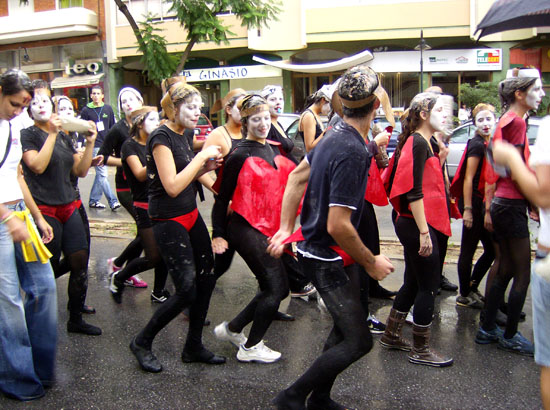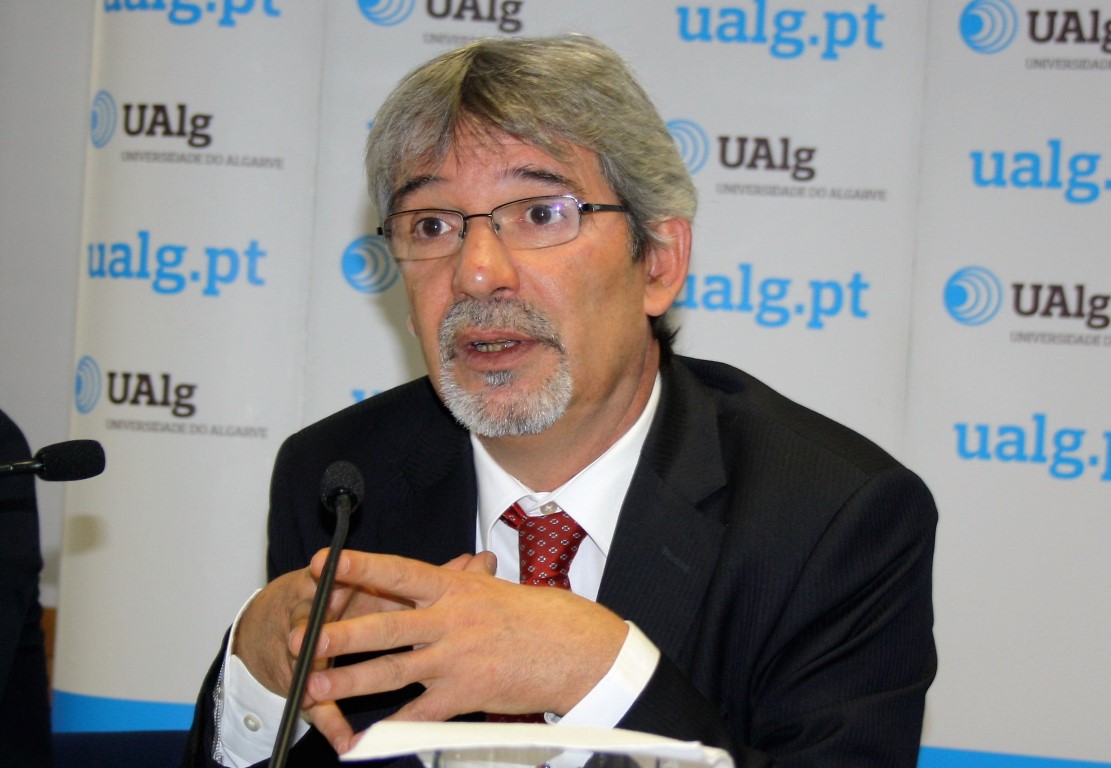 António Branco, dean of the University of Algarve (UAlg), considers that the current generation of students would never participate in practices if they had another representation of what it means to be young, as well as «the naturalization of hierarchy and games around symbolic structures of power and humiliation». These words were uttered by the rector at the presentation of the book «Praxe e Tradição Académica», by Elísio Estanque, which took place last week at the Campus of Gambelas of UAlg, in Faro.
António Branco, dean of the University of Algarve (UAlg), considers that the current generation of students would never participate in practices if they had another representation of what it means to be young, as well as «the naturalization of hierarchy and games around symbolic structures of power and humiliation». These words were uttered by the rector at the presentation of the book «Praxe e Tradição Académica», by Elísio Estanque, which took place last week at the Campus of Gambelas of UAlg, in Faro.
António Branco completed this idea saying that the representation that his generation, the «60s», has of these phenomena identifies the young person as the citizen responsible for denouncing these structures of power and humiliation.
Even so, the dean of UAlg stressed that "practice reflects society". "The young people who participate in it are not extraterrestrials, but members of it," he added. As for the book – the central theme of the session – António Branco considered that it mirrors the way in which the University “should look at these phenomena, producing knowledge”.
The idea that the dean of UAlg has of the practice was very evident in a conversation that the head of the Algarve academy had with journalists, at the end of October. otherwise,” he said.
Still, in this joint interview, which can be heard in full here, António Branco made a positive assessment of the institution's practices in 2016, a year marked by the imposition of various rules, by the rectory, to the process of welcoming new students.
"In consequence of last year's events, we realize that society is increasingly intolerant of behavior that it interprets as deviant, abusive, excessive or irresponsible. As dean of UAlg, it was up to me to give an answer both inside the university and outside”, he said.
 For that person in charge, there were three hypotheses on the table, two of them diametrically opposed: doing nothing or prohibiting practices altogether. António Branco opted for the 3rd way, «probably taking some risks, that of prohibiting certain behaviors, instead of the practice itself».
For that person in charge, there were three hypotheses on the table, two of them diametrically opposed: doing nothing or prohibiting practices altogether. António Branco opted for the 3rd way, «probably taking some risks, that of prohibiting certain behaviors, instead of the practice itself».
“The result of this was the need for students to adapt very quickly to these norms, which are social, moral and legal norms. Therefore, I felt in certain sectors of the student community that this was a credible alternative to banning the practice. Still, the balance is very satisfactory. We had no shocks and there was no complaint, unlike last year, when there was more than one», he assured.
In the book he wrote and presented a few days ago in the Algarve, Elísio Estanque, who is a professor in Coimbra, the mother city of this phenomenon, sought to show the good and bad sides of the practice. To this end, the author collected testimonies both from young people who enjoyed the experience, as well as from others with the opposite opinion. “I'm not in favor of prohibiting the practice. I am, instead, in favor of reflection and understanding of what this means from a sociological and cultural point of view,” he said.
Confessing that he has already witnessed more problematic situations, Elísio Estanque also said that the so-called "alternative practices" can "have humanitarian purposes." At the usual time of the current school year, o Sul Informação was to know one of these cases.
Also present at this presentation, Filipa Braz da Silva, former president of the Academic Association of the University of Algarve, acknowledged, following the words of António Branco, that the current generation of young people «better accepts authority».
Pedro Vitorino, a member of the Civil Engineering course's policy committee, said that "the fault of policy being the order of the day is ours." Even so, the UAlg student considered that, at the University of Algarve, the practices are «going much better, also due to the support of this rectory».


















Comments